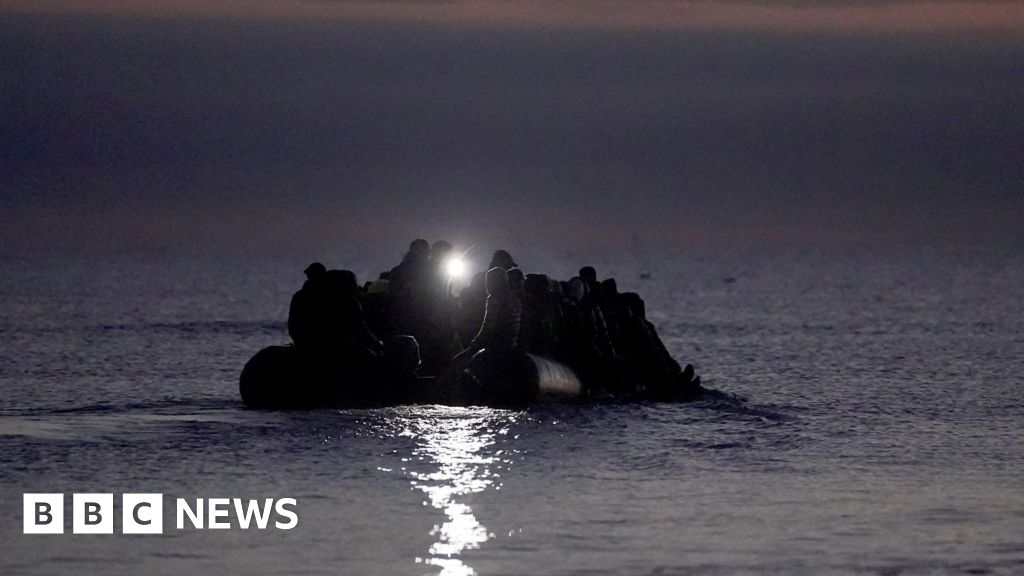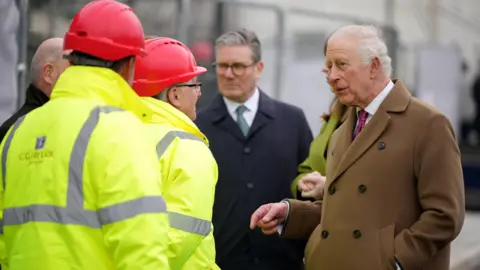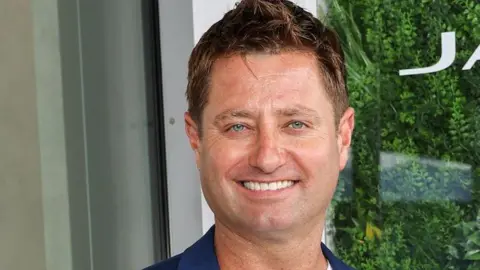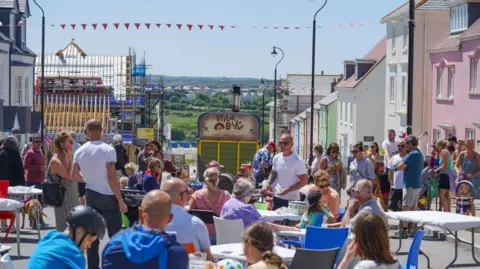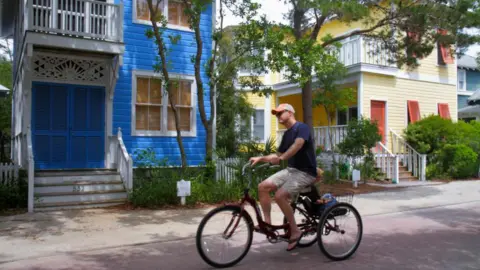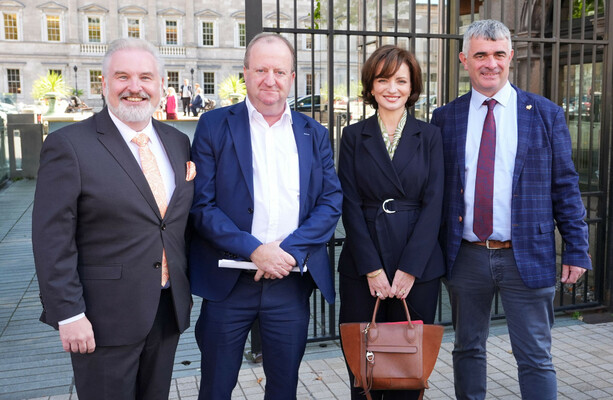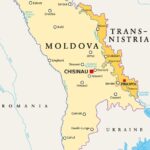WITH LESS THAN four weeks left to go until the Irish presidential election, we now know that there will be only three candidates on the ballot.
Last Saturday, Sinn Féin finally ended the suspense and announced that they would be joining Soc Dems, People Before Profit, Labour and the Green Party by betting on Catherine Connolly.
Indeed, as the week wore on, they only became more fulsome in their endorsement of the independent TD from Galway. “We are ready to move Heaven and Earth to elect Catherine Connolly as our next Uachtarán na hÉireann,” Mary Lou McDonald said in one tweet. A sentiment that will undoubtedly encourage Connolly, though the capital letters on heaven and earth feel a little apocalyptic. We will see Catherine Connolly in the Áras, even if it means taking on God Himself.
Speaking of which.
In the end, Maria Steen could only convince 18 Oireachtas members to back her bid to get on the ballot. Steen, known to many for campaigning against abortion rights and marriage equality, came within touching distance of joining the race before falling agonisingly short ahead of Wednesday’s midday deadline.
Some political correspondents spent Tuesday and Wednesday of this week tweeting breathlessly as Steen inched ever closer to a nomination — securing the endorsements of Independent Ireland and Michael Healy-Rae. It was the kind of thing that’s exciting to watch if you were, at some point in your life, cursed by a witch to pay close attention to electoral politics for the rest of your life.
The narrative peddled by some is that Maria Steen was ‘blocked’ from getting on the ballot, which is a fascinating way to frame it. For example, if you were running for election and didn’t get enough votes to win, you haven’t been ‘blocked’ from taking a seat in the Dáil — it’s called losing. It happens sometimes. If anything, Steen should be overjoyed that she was able to convince as many as 18 parliamentarians to back her.
The argument that any given prospective candidate’s name must be on the ballot for the sake of democracy is a weird one. If it’s somehow a subversion of democracy for Maria Steen, or Gareth Sheridan, or Conor McGregor, to not be on the ballot, then why not do away with the ballot altogether? Why not do away with the local authorities and the 20 Oireachtas members? Why not simply let us choose the president from the five million plus people on the island, have a five-million-way tie and realise that yes, as a matter of fact, we do need some kind of threshold for getting on the ballot.
You know who was literally blocked from getting on the ballot? Me. Blocked by the Constitution itself. But you don’t see me giving out about it.
And no offence to anyone who didn’t make it this time, but if three Dragon’s Den ‘dragons’ could get their name on the ballot in 2018, then I’m afraid we can’t exactly act as though it’s some steep impossibility.
There is virtually no evidence whatsoever that the dozen or so hopefuls who were summarily dismissed in the wisdom of our local authorities commanded any kind of public support. It seems plausible that the average Irish person would have little to no idea who Maria Steen even is. They definitely don’t know who Gareth Sheridan is. They know who Conor McGregor is, of course, but for the most part they despise him.
One does wonder, after all, what kind of person it is that wakes up in the morning and thinks: ‘I’m going to try my hand at public service for the first time in my entire life, and I know exactly where to start: by being the President.’
Of course, it would be hubristic of us to conclude that our system cannot be improved upon. Waiting seven years and only raising the matter six weeks out from the election itself, however, is not the behaviour of anyone who is serious about improving our electoral processes.
There is no reason to dismiss out of hand the idea that the role of the Irish presidency could evolve, or that the mechanisms by which the president is elected could be improved. These arguments would, however, be a lot more compelling if they didn’t invariably seem to end with some degree of self-interest. Sort of like: “By the way, once we’ve made all those other changes, the main change we should make is that I should be the president.” I’m sure all those who raised the issue will be rolling out their comprehensive plans for electoral reform any minute now.
As it stands, we go into the home stretch of this election with just three names on the ballot: Catherine Connolly, Heather Humphreys of Fine Gael, and Jim Gavin representing Fianna Fáil.
Abroad, it has once again been a week in which Irish people must reckon with the foolishness of the British government. It was announced yesterday that the UK has plans for everyone who lives there to rely on a digital ID card in order to access essential government services. Now that’s a bad start for a whole host of reasons in terms of government overreach and data protection risk, but we haven’t gotten to the real problem yet. The real problem is that they’re apparently planning to call this digital ID… the ‘Brit card’. Has Keir Starmer ever come up with an idea that people actually like?
In addition to the half a million Irish people living in England and Wales (as of 2021, the current number is probably higher), there is very much a cohort of people in Northern Ireland — roughly half of them, quite famously — who, again quite famously, do not identify with the designation ‘Brit’. One can see an almighty backlash against the idea, sounding as it does like the 21st Century version of ‘taking the soup’. Oh, got your Brit card in your wallet, do you?
But Irish people in the UK shouldn’t worry. Our fearless leaders surely have our backs. Why, just look at Micheál Martin. After Kneecap were banned from Canada last week (amid false claims by one of their MPs, no less), our brave Taoiseach marched right into a meeting with Canadian PM Mark Carney and uh… didn’t bring it up, actually.
Now, you might think that these (obviously) politically motivated steps being taken against some of the most important Irish artists of our day by multiple governments would merit concern from the Taoiseach, but he defended his reticence by saying that he had received no request for representations to be made. You know, the way leaders talk. Nobody asked me to, how was I supposed to know what to do? I’m just the Taoiseach.
The attack on Kitty O’Brien by German police last month, the travel restrictions faced by perhaps Ireland’s best known living author in Sally Rooney, the censorship of Kneecap… Apparently, the reason why Martin is incapable of speaking meaningfully about these things is that we’re just not asking him hard enough.
But hey, maybe we’ll get lucky and our next president will stand up for us instead. One can only hope.













